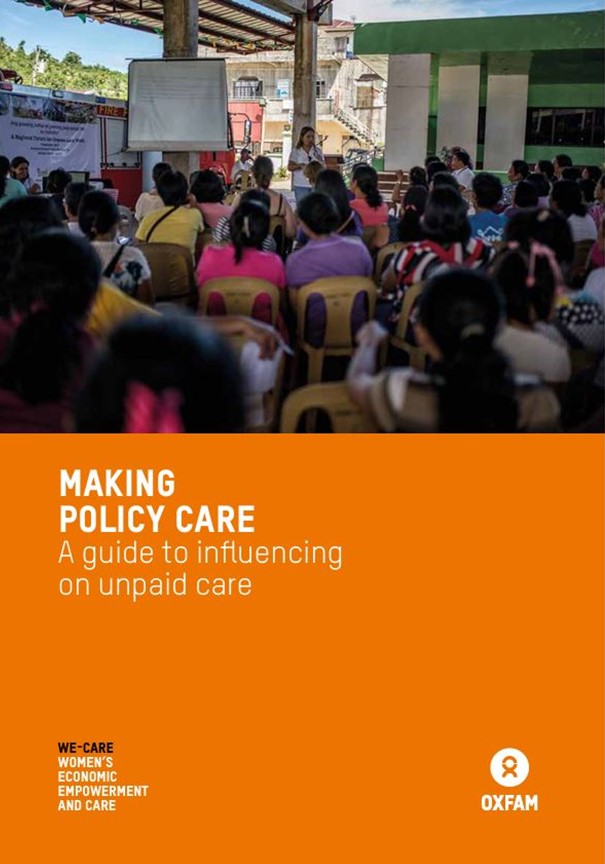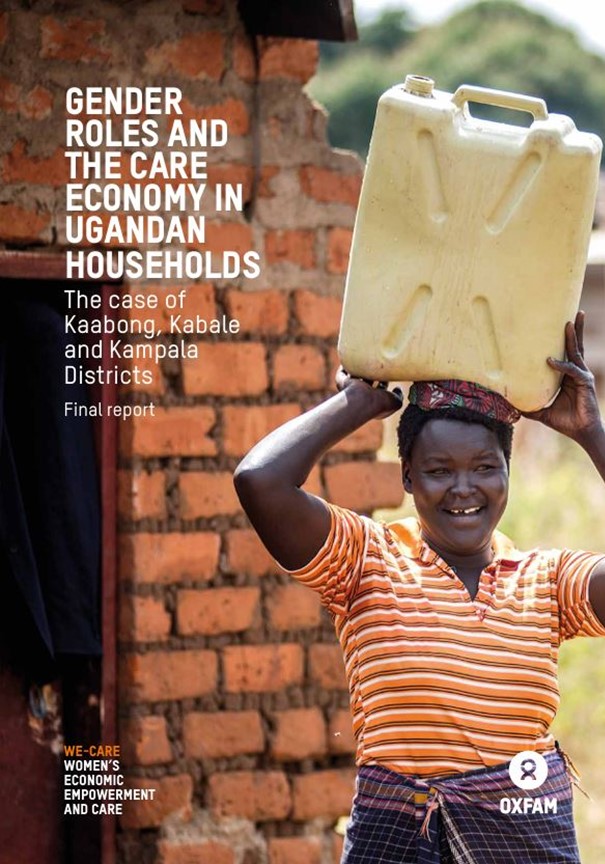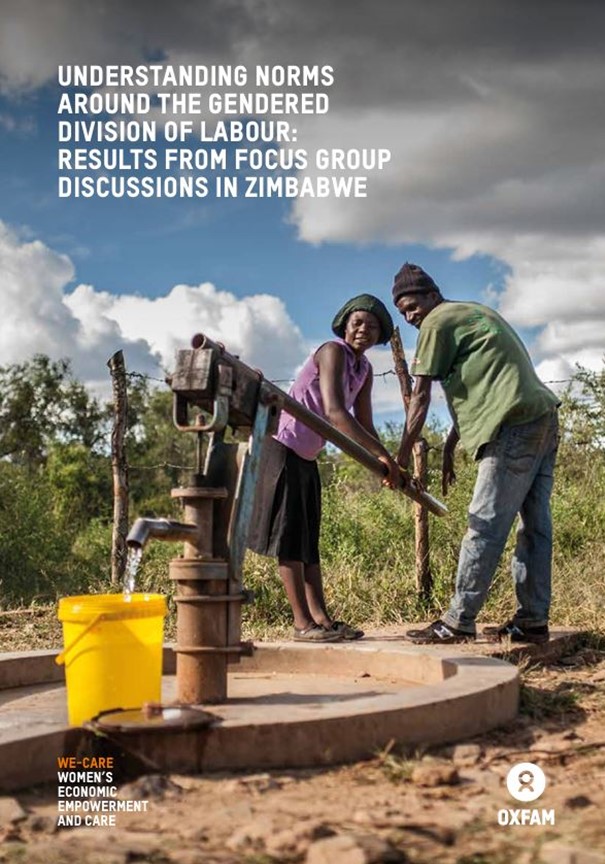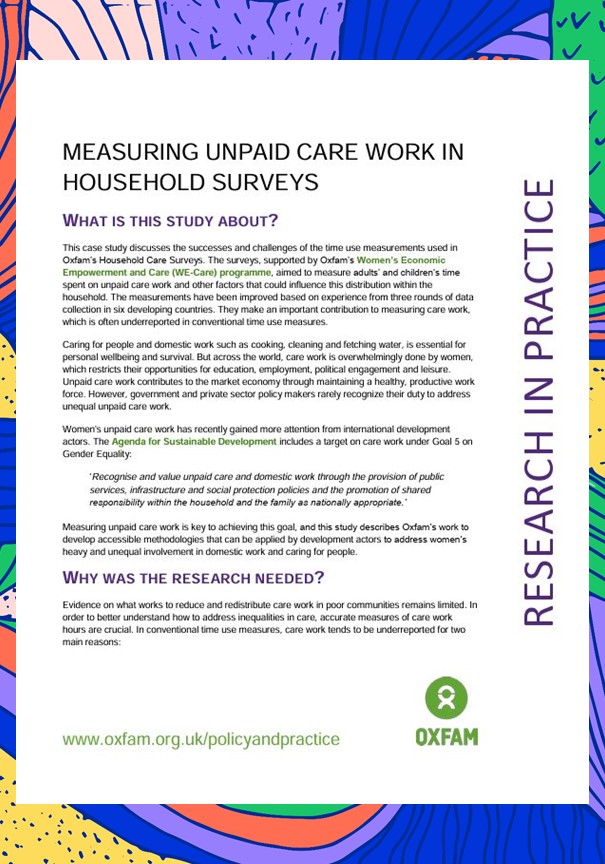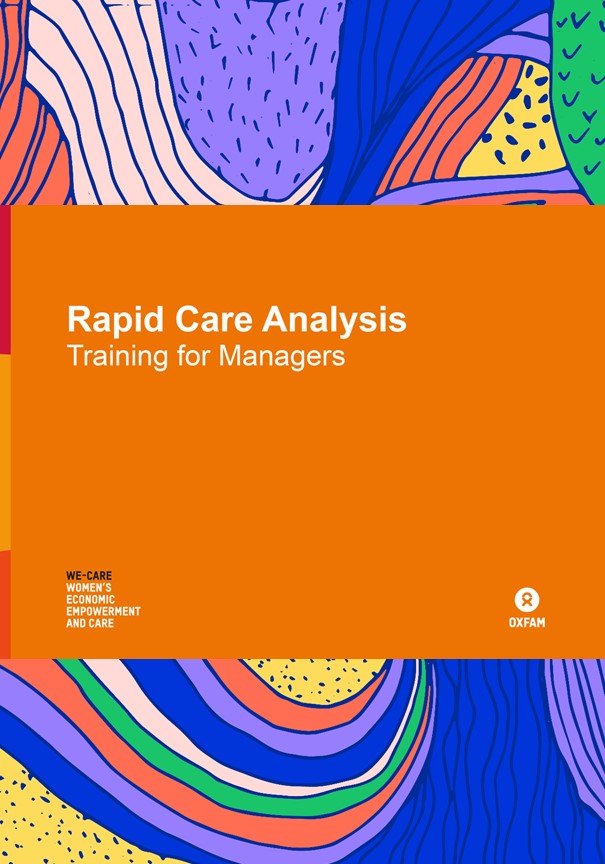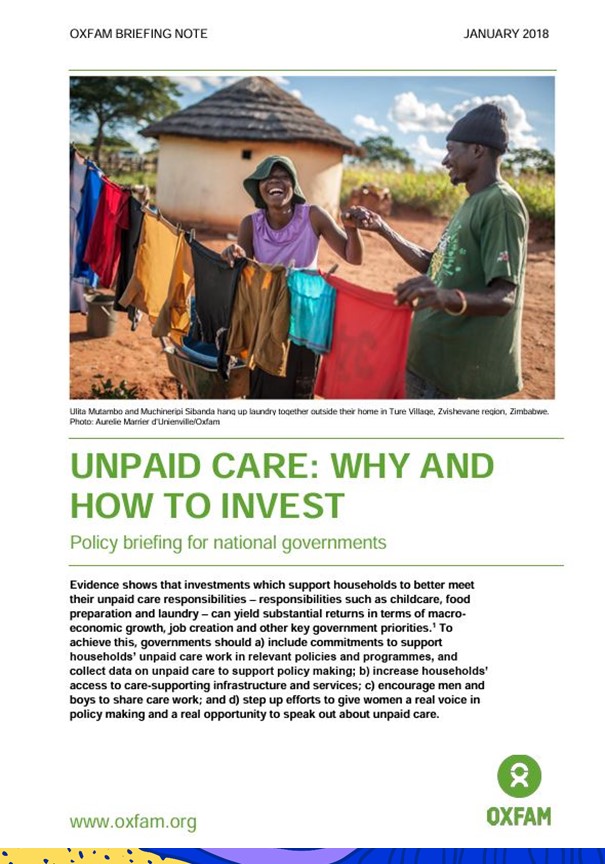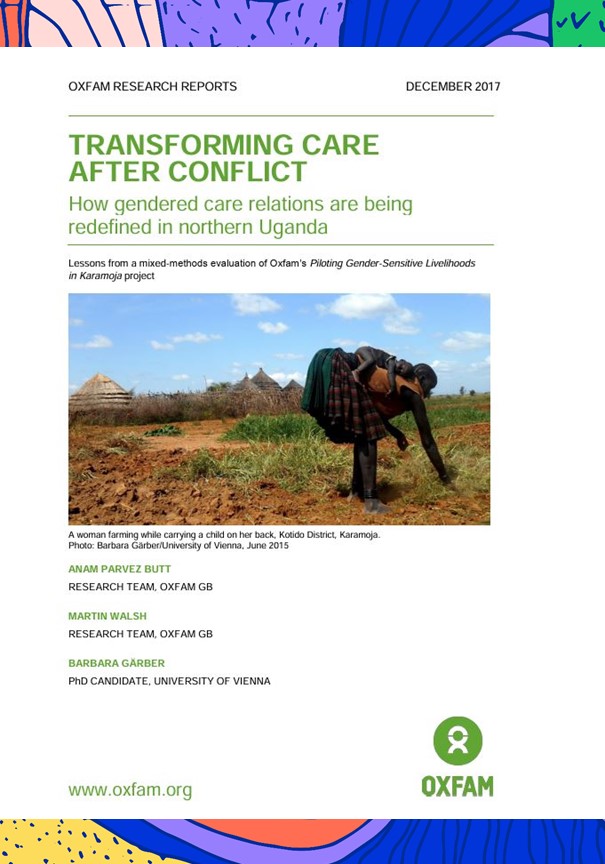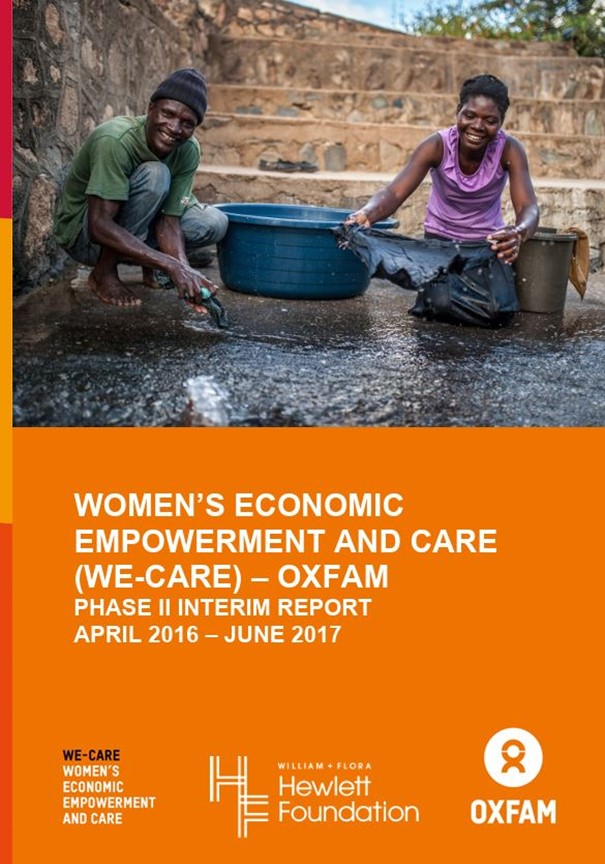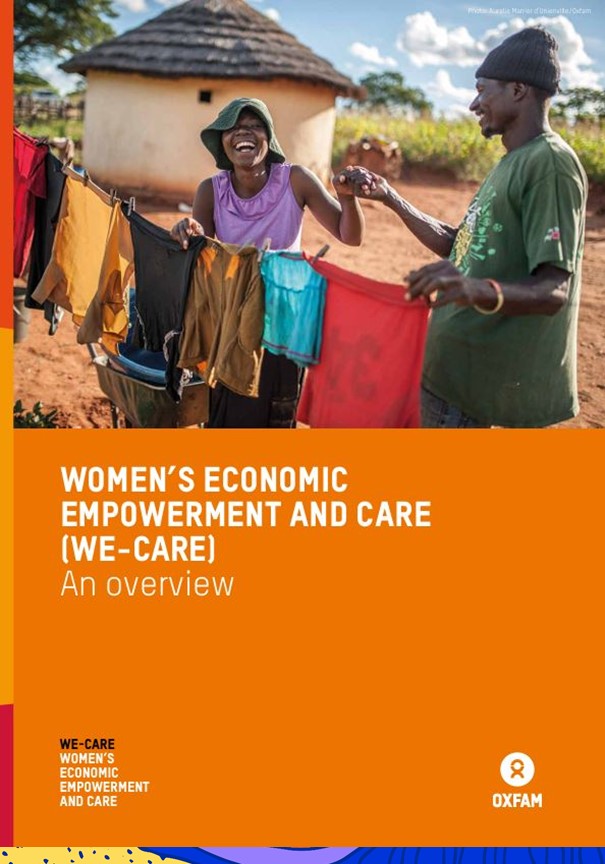Making policy care: A guide to influencing on unpaid care
This guide aims to capture valuable experiences and learning on influencing activities on unpaid care and domestic work from across the WE-Care programme and several other relevant Oxfam country experiences, and to communicate it in an accessible, practical format that maximizes use for internal and external audiences.

